SUMMARY
This is AI generated summarization, which may have errors. For context, always refer to the full article.
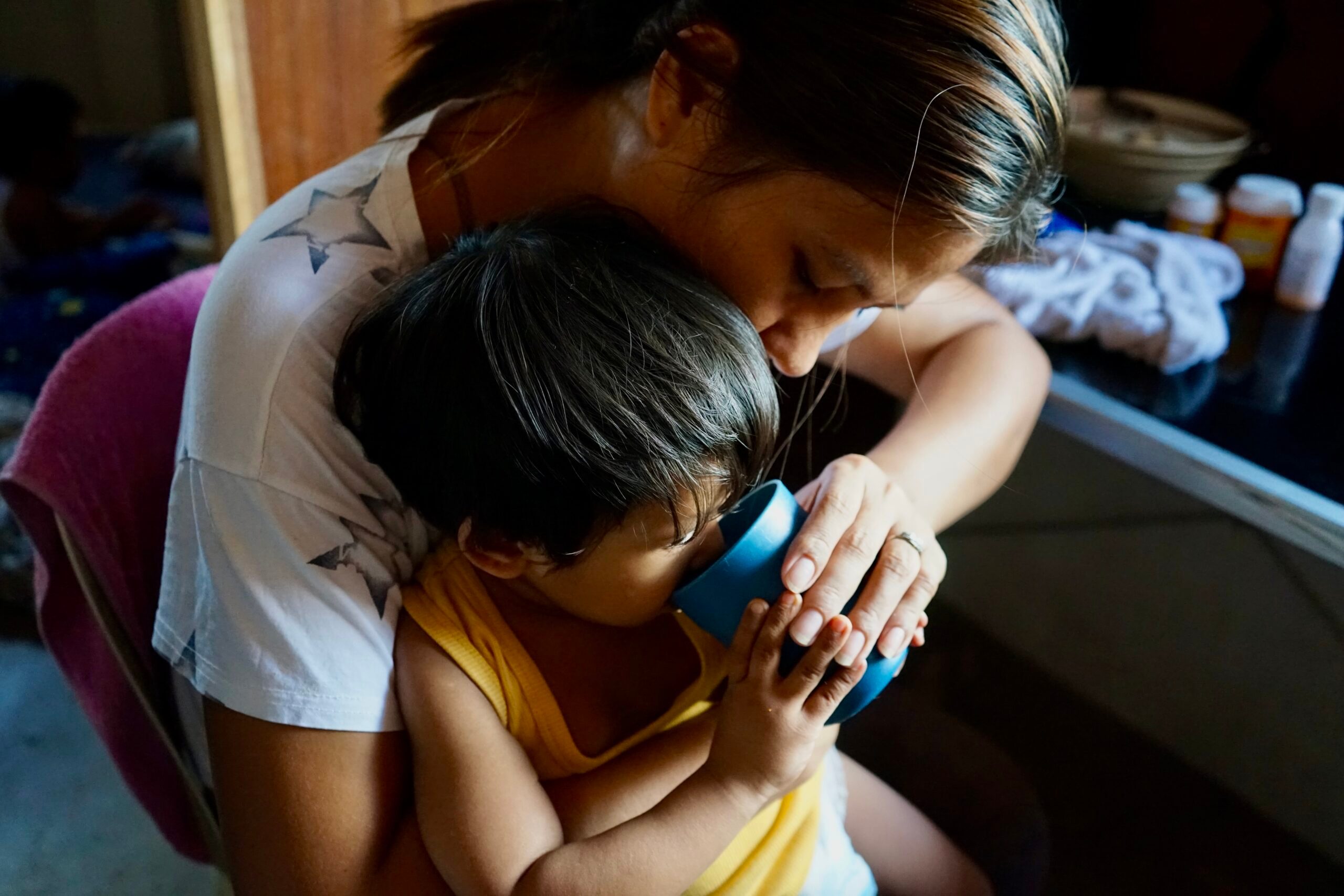
Baby Hero was born with congenital adrenal hyperplasia (CAH), a condition that affects the production of hormones in his body. Having CAH makes Hero intersex, and the type of CAH he has requires lifetime medication.
This is why his parents, Jenelyn Puto and her partner Marlon Michael Ferrer, toil along busy Dela Rosa Street in Makati, selling fried calamares, chicken skin, kwek-kwek, and gulaman off the sidecar of their motorbike.
Sometimes, you’ll see one of them, while the other takes a break at home. Other times, you’ll see both. But very seldom will you see neither of them, as the life of their youngest child quite literally depends on every stick of fried food they sell.
Intersex people like baby Hero are born with sex characteristics – like reproductive organs, hormonal patterns, or chromosomal patterns – that do not fit typical binary notions of male or female bodies, according to the United Nations (UN) human rights office. Being intersex in itself is not a disease, and not all intersex people have life-threatening conditions.
It is the “I” in the acronym for the LGBTQIA+ community, that refers to lesbian, gay, bisexual, transgender, queer, intersex, asexual, and other gender identities. While the rest of the letters in the acronym have become more recognizable in popular media, the “I”s remain largely invisible.
“Ako, bilang ina, hindi ko kinakahiya na may anak akong intersex. Proud ako,” said Jenelyn. (I, as a mother, am not ashamed that I have an intersex child. I’m proud.)
But being the parent of an intersex child in the Philippines is far from being a walk in the park.
A struggle to understand
Jenelyn and Marlon planned all of their children except for Hero. They already had four other kids, and the one before Hero was born with autism, which had many challenges in itself.
During Jenelyn’s pregnancy with Hero, she carried on working in their fried food business. She continued to ride their motorbike and deliver food, and cook in the streets as the heat from the pan enveloped her belly.
Her doctor had told her to take it easy, but she wanted to work and help her partner. But with no complications detected with Hero at the time, Jenelyn was driven by the desire to bring her family even small luxuries, like taking vacations or celebrating a birthday at Jollibee.
And then Hero came along. The nurses asked Jenelyn if her partner was a Black American. “No,” she told them, “my partner is Filipino.” They asked, since her baby’s complexion was dark, so dark that “it was like he did not have blood.”
While it was peculiar to her, Jenelyn thought that perhaps her baby had dark skin because she had a tanned complexion herself. It was in the newborn screening when they found out Hero had CAH. They were told it was a “rare disease,” and they had no idea what it was. Hyperpigmentation in newborn males is a symptom of CAH.
A week into Hero’s life, he became sickly. He no longer wanted to breastfeed, rapidly began to lose weight, and constantly defecated even if he did not eat.
To confirm their baby’s condition, Jenelyn and Marlon were told to schedule an appointment with an endocrinologist – again, a term they had no familiarity with.
“Wala kami idea sa sakit ng anak namin. At talagang sinabi nila – walang paligoy-ligoy – na kung hindi namin dadalhin agad, maaari siyang mamatay,” she said. (We had no idea about our son’s condition. And they told us, straightforwardly, that if we did not bring him to a specialist, he could die.)
Even after a confirmatory test, Jenelyn was still mostly unaware about her son’s CAH. She turned to YouTube to educate herself, the same way she learned about her other son’s autism.

Daily grind
In Jenelyn’s small home in Sta. Ana, Manila, there are two refrigerators. The smaller one of them has only two things inside – Hero’s medicines, and a batch of frozen food she will cook and sell on the street.
Every three months, Jenelyn and her partner have to cough up at least P12,500 for Hero’s medicine and laboratory procedures. Hero has to take hydrocortisone and fludrocortisone every day, or he goes into adrenal crisis, which can cause low blood pressure, low blood sugar, dehydration, vomiting, and diarrhea.
This is why it’s so important for them to work every single day. In paying the P12,500, they have to take out loans from people in their community, which they pay back as they earn from their street stall. Jenelyn also turns to social media to find kind souls who will help her fund her son’s medical needs.
The couple is also able to secure some financial help from the Department of Social Welfare and Development. But explaining her son’s condition to the personnel handling her requests is always a pain, as they often don’t understand what CAH is.
“They don’t understand that, once a child or a patient has this disease, they shouldn’t give us a hard time anymore. Since some of them aren’t aware of my son’s condition, they schedule the payouts,” Jenelyn said in a mix of Filipino and English.
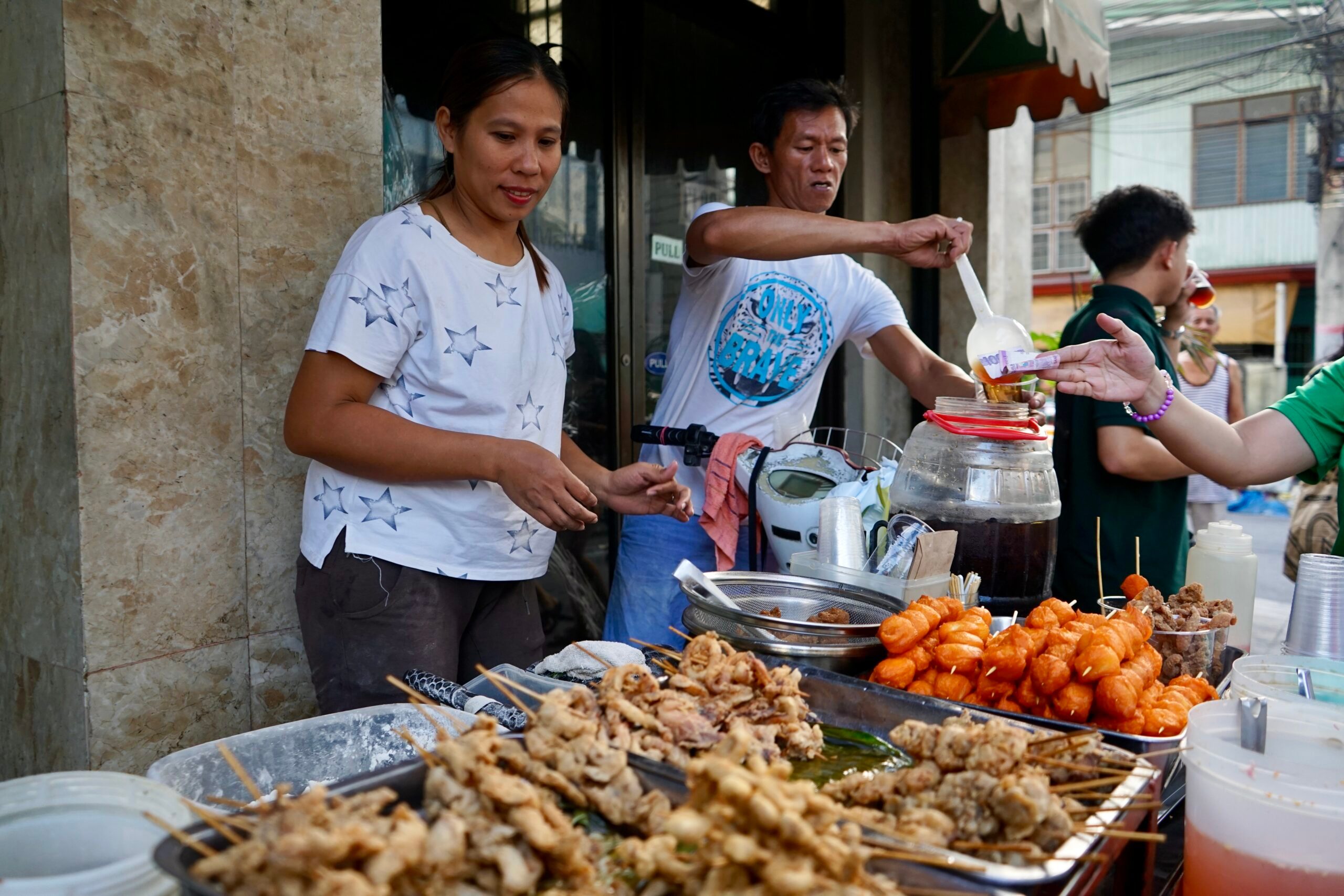
In her quest for community, Jenelyn eventually found Intersex Philippines, a five-year-old organization of intersex people and parents of intersex children. Also part of this group is Nelson Ancajas, who once filed for candidacy as senator to seek help for his child, who struggled with CAH.
In Intersex Philippines, they don’t feel so alone.
A struggle to be seen
The plight of the intersex community rarely comes into the national spotlight. But one time it did was when the Supreme Court (SC) sided with Jeff Cagandahan in a 2008 landmark ruling that paved the way for the community’s rights.
Jeff, who was assigned female at birth, has CAH. As he grew older, he developed male characteristics, his ovaries shrank, and he had no breasts nor menstrual cycle. Physically and mentally, Jeff felt that he was a man.
In 2003, at a regional trial court (RTC) in Laguna, Jeff filed for changes in his birth certificate, namely the change of his name from “Jennifer” to “Jeff,” and his gender from “female” to “male.”
To support his petition, Jeff presented the testimony and medical assessment of psychiatrist Dr. Michael Sionzon, who attested to Jeff’s underdeveloped female characteristics because of a lack of female hormones.
“[Sionzon] further testified that respondent’s condition is permanent and recommended the change of gender because respondent has made up her mind, adjusted to her chosen role as male, and the gender change would be advantageous to her,” the SC wrote, with “her” referring to Jeff.
The RTC sided with Jeff, though the Office of the Solicitor General tried to reverse the decision. In the end, the SC upheld it, saying that Jeff let nature take its course in allowing his body to reveal male characteristics. He was allowed to change his name and gender in his birth registry.
“Respondent is the one who has to live with his intersex anatomy. To him belongs the human right to the pursuit of happiness and of health. Thus, to him should belong the primordial choice of what courses of action to take along the path of his sexual development and maturation,” the decision read, penned by the late former associate justice Leonardo Quisumbing.
Jeff later on co-founded Intersex Philippines, and currently serves as a co-chair of Intersex Asia. Intersex Philippines has over 200 members.
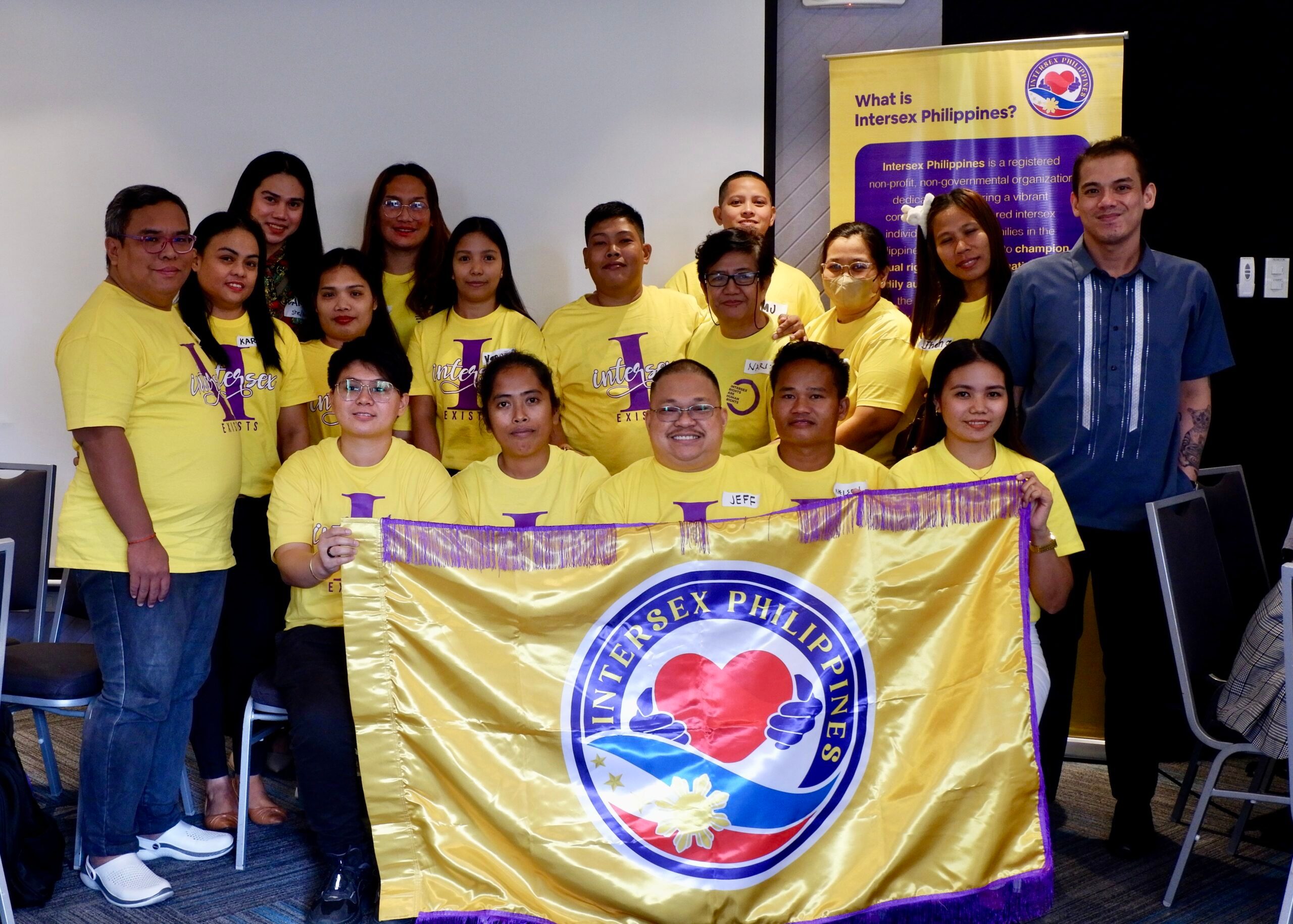
Though it’s been more than a decade since Jeff’s legal victory, the lack of public awareness about intersex people and their concerns generally remained in the Philippines, even among medical professionals.
For instance, while there are plenty of endocrinologists across the Philippine health system, Jeff said that it is difficult to find “intersex-friendly” endocrinologists, who do not push intersex people to undergo procedures to conform with the sex they were assigned at birth.
“They tell parents that their children are abnormal, or disordered.… Because parents are told that, they believe that they have to make their children ‘normal,’” Jeff said in Filipino.
Constant challenges
Access to medicine remains the biggest challenge for intersex people in the Philippines, according to Jeff. Based on their group’s research, just one specialty compounding pharmacy, Apotheca, produces the medicines that most in their community need. It’s Metro Manila-based, which makes it even harder for those in the provinces to access them.
Jeff constantly receives reports of children with life-threatening intersex variations who succumb to their condition, as their parents were unable to acquire the medications that could have kept them alive.
According to Intersex Philippines, some intersex children undergo irreversible, unnecessary surgeries and treatment without their consent. Some also experience emotional harm from this treatment.
“Many intersex individuals, both young and old, recount the adverse effects of unwanted surgeries, such as diminished self-esteem, depression, anxiety, and difficulties in trust and intimacy. Despite well-meaning intentions, hastily attempting to alter a child’s physical differences typically exacerbates, rather than resolves, issues,” the group said.
It’s even hard for the community to know how many they are. While the UN has a general 1.7% figure of babies born with sex characteristics that don’t fit into typical male or female definitions, there are no local numbers in the Philippines.
One suggestion from Intersex Philippines for gathering data in the country is to record babies who are born with ambiguous genitalia. While not all intersex people have ambiguous genitalia at birth, Jeff said it’s a good place to start.
Need for policy
In November 2023, Bataan 1st District Representative Geraldine Roman filed the Cagandahan Bill in Congress, which seeks to make what Jeff achieved more accessible to intersex Filipinos.
“To date, while the intersex people celebrate the Court decision, most of them cannot avail of the remedy themselves as they still need to undergo the costly and tedious court litigation,” the bill’s explanatory note reads.
While Republic Act No. 9048, enacted in 2001, allows Filipinos to correct clerical and typographical errors in their civil registry offices without judicial orders, the bill said that this does not “explicitly address the unique circumstances of intersex individuals.” Having their legal documents amended to align with their identities would acknowledge an intersex person’s right to self-determination, it said.
The bill seeks to provide a “straightforward and accessible” legal process for intersex individuals looking to change their first names and sex at the civil register, without the need to go through court processes.
“Hopefully we can come up with a timetable. I don’t want to commit yet, but we will do our best to at least initially discuss the bill for this Congress,” said Roman’s staff Anna Marie Pangilinan in a February 23 Intersex Philippines event.
On March 20, Senator Risa Hontiveros filed the counterpart bill in the upper chamber.

Having a bill institutionalizing a straightforward process for birth registry changes is just one step forward. For parents of intersex kids with life-threatening conditions, easier access to medicines could mean the world.
“We are looking for a long-term solution, which is policy. We want to dialogue with the Department of Health, the Department of Science and Technology, and medical associations, so we can come up with a policy to make financial help for medical needs more sustainable,” said Jeff in a mix of English and Filipino.
Jenelyn hopes that parents in her situation, no matter how difficult it gets, do not give up on their children.
“Ako, every day, bago ako matulog, lagi naming dinadasal sa Diyos, na sana gisingin pa ako. Sana gumising pa ako, kasi kailangan pa ako ng mga anak ko,” she said.
(Every day before I go to bed, we always pray to God that I wake up the next day. I must wake up, because my children still need me.) – Rappler.com
Add a comment
How does this make you feel?
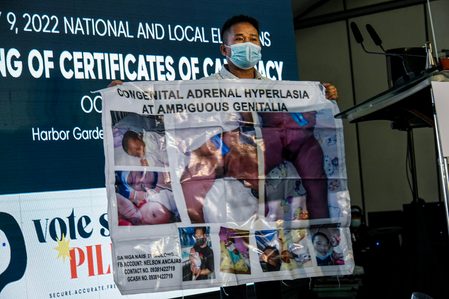
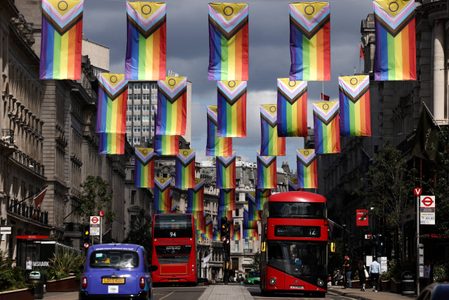





![[ANALYSIS] Hippocrates and hypocrites](https://www.rappler.com/tachyon/2024/07/TL-medical-ethics-june-27-2024.jpg?resize=257%2C257&crop=314px%2C0px%2C720px%2C720px)


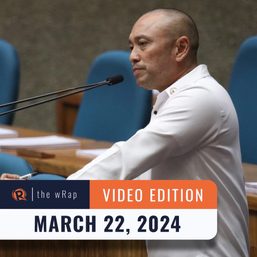
![[OPINION] Beyond infrastructure: Ensuring healthcare access for the poor](https://www.rappler.com/tachyon/2024/03/tl-healthcare-access-03402024.jpg?resize=257%2C257&crop_strategy=attention)
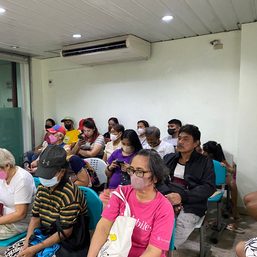
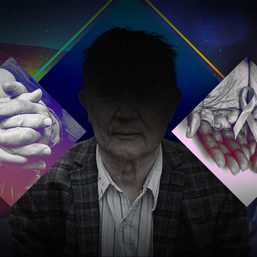
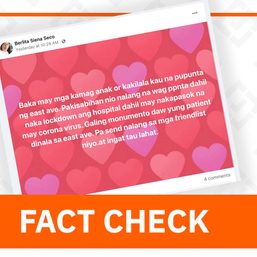
There are no comments yet. Add your comment to start the conversation.